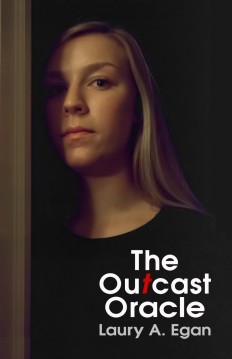
Many elements of “The Outcast Oracle” did not seem believable to me. When C.B. dies, his parishioners have no problem with a Charlene, a 15-year-old high school student, taking over as preacher. Then when Cody starts cooking up “miracles,” the parishioners blindly accept them as acts of God and fill the offering plates with cash. There is also the problem with none of the parishioners minding that their preacher has an illegal moonshining business on the side. The author goes out of her way to explain that all of the moonshine customers keep it a secret from the parishioners, yet all of the students at Charlene’s high school know about it.
I suppose that it should not come as a surprise that people who believe in God are painted as simple-minded in “The Outcast Oracle” since the book was published by the Humanist Press. Humanists believe that the Bible “was written solely by humans in an ignorant, superstitious, and cruel age,” according to the American Humanist Association’s website.
I could probably have gotten over my own feelings about people of faith being stereotyped as gullible if the book was better overall. In many ways “The Outcast Oracle” seemed like the rough draft of a story that could have been really great. The fact that C.B. left Charlene plenty of money when he died didn’t make Charlene’s desire to stop being a fraud and get out of the religion business seem like much of a conundrum. During one of Charlene’s sermons, she touched a girl in a wheelchair and the girl was suddenly able to walk. This leads Charlene to briefly wonder if God could have used her to perform a real miracle even though she doesn’t believe in God, but then the situation is completely dropped from the plot like a hot potato.
When I decided to read “The Outcast Oracle,” part of the appeal was that the synopsis reminded me of “Daisy Fay and the Miracle Man,” one of my all-time favorite books that I read every few years when I’m in need of a good laugh. Maybe it is not fair to hold any book to such a high standard. “The Outcast Oracle” did keep my interest and is full of a many interesting characters, but I would have felt more satisfied with the book if the plot had been more developed.






